NY Times: Israel notified US ahead of Natanz act of sabotage
A new report says the Israeli regime gave the administration of US President Joe Biden a last-minute notice before an act of sabotage that caused a power outage at Iran's Natanz nuclear facility earlier this year.
Citing unnamed American and Israeli sources, the New York Times reported that former prime minister Benjamin Netanyahu ordered Israeli security officials to reduce the information that they conveyed to the US about planned operations in Iran.
On April 11, when the attack took place at Natnaz nuclear site, Israel’s Mossad spy agency gave the US less than two hours’ notification, far too short a time for Washington to assess the operation or ask Tel Aviv to call it off, according to the report.
Israeli sources said they concealed information from their American counterparts because there had been leaks regarding earlier attacks.
Senior Biden administration officials said the Israelis violated an unwritten agreement to inform the United States of covert operations.
After the Natanz attack, CIA director William Burns called Mossad chief Yossi Cohen, expressing concern over the snub, the report said.
Cohen claimed that the belated notification was due to operational constraints and uncertainty about when the attack would take place.
One day after the Israeli act of nuclear terrorism, White House press secretary Jen Psaki said Washington "was not involved in any manner.”
The US, however, has a history of collaborating with Israel in sabotage acts against Iran.
For example, the Stuxnet computer virus is widely believed to have been developed jointly by the United States and Israel. It was the first publicly known example of a virus being used to attack industrial machinery. It was discovered in 2010 after it was used to attack a uranium enrichment facility at Natanz, Iran.
The April attack occurred less than a week after the first talks began in the Austrian capital, Vienna, on a potential revival of the Joint Comprehensive Plan of Action (JCPOA), something Israel opposes.
Former US president Donald Trump abandoned the agreement and reimposed the anti-Iran sanctions that the JCPOA had lifted. He also placed additional sanctions on Iran under other pretexts not related to the nuclear case as part of the “maximum pressure” campaign.
Following a year of strategic patience, Iran resorted to its legal rights stipulated in Article 26 of the JCPOA, which grants a party the right to suspend its contractual commitments in case of non-compliance by other signatories.
Now, the Biden administration says it wants to compensate for Trump’s mistake and rejoin the accord, but it is showing an overriding propensity for maintaining some of the sanctions as a tool of pressure.
Tehran insists that all sanctions should first be removed in a verifiable manner before the Islamic Republic reverses its remedial measures.
Biden, Bennett discuss Iran
On Friday, Israeli prime minister Naftali Bennett met Biden at the White House for the first time since taking office and pressed the US to harden his approach toward Iran and back out of the Vienna negotiations.
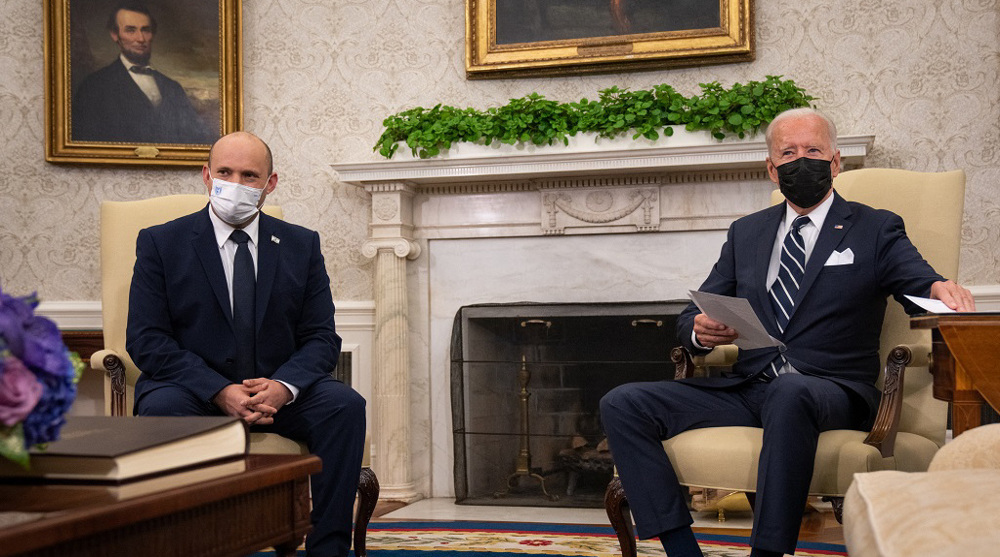
“We’re putting diplomacy first and we’ll see where that takes us. But if diplomacy fails, we’re ready to turn to other options,” Biden sad in the Oval Office, without offering specifics.
The Israeli premier, for his part, said, “I was happy to hear your clear words that… you’ll try the diplomatic route but there’s other options if that doesn’t work out.”
‘Say no to Biden’: US college being pressed not to endorse genocide
VIDEO | UN: Alarming food insecurity crisis grips Afghanistan
VIDEO | Stuck in quagmire
UK suspends legal assessments of Israeli violations in Gaza
Students protest at US universities to urge end in financial ties to Israel
Biden signs war aid bill supplying Israel, Ukraine with more weapons
VIDEO | France, West warn Israel against escalation with Iran
Iran refutes Kuwait’s assertion of exclusive rights to Arash gas field


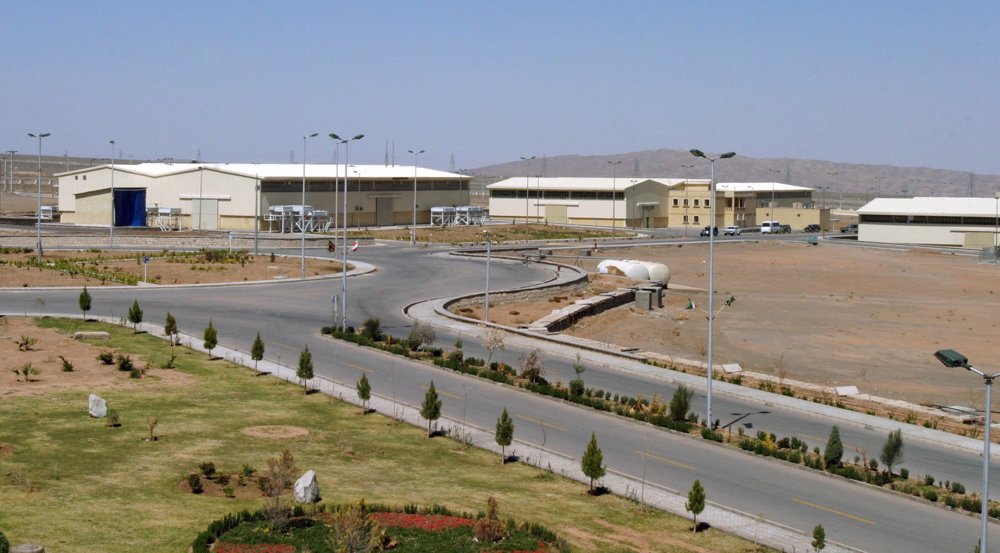
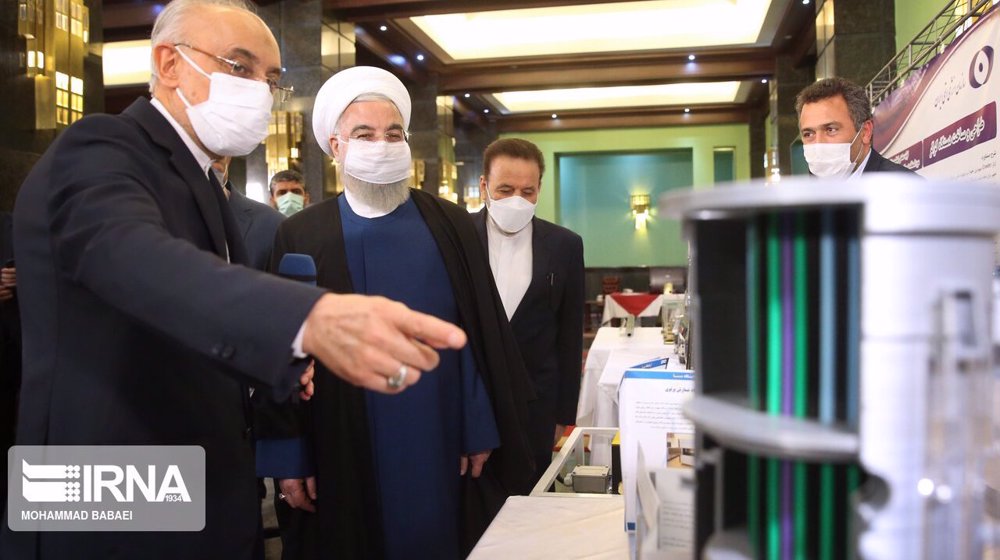
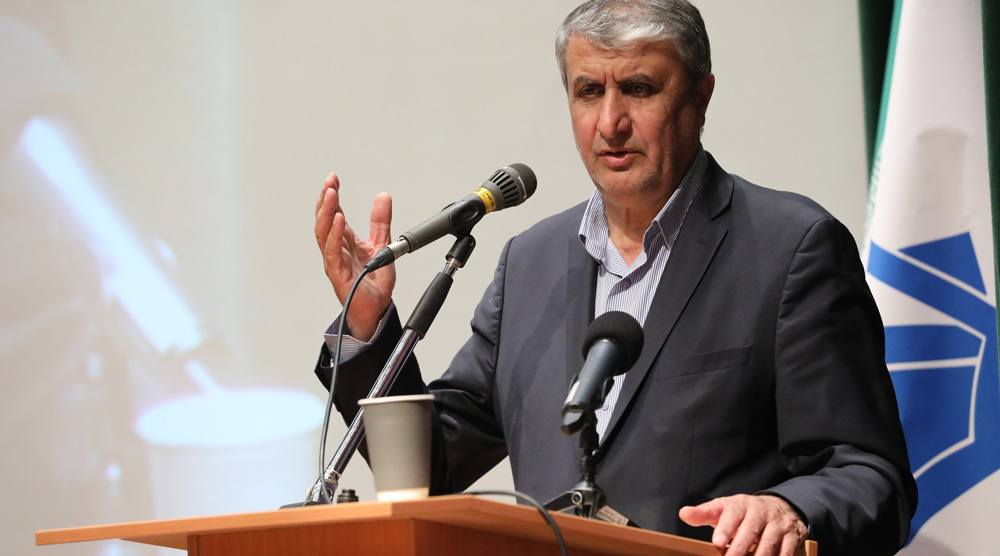
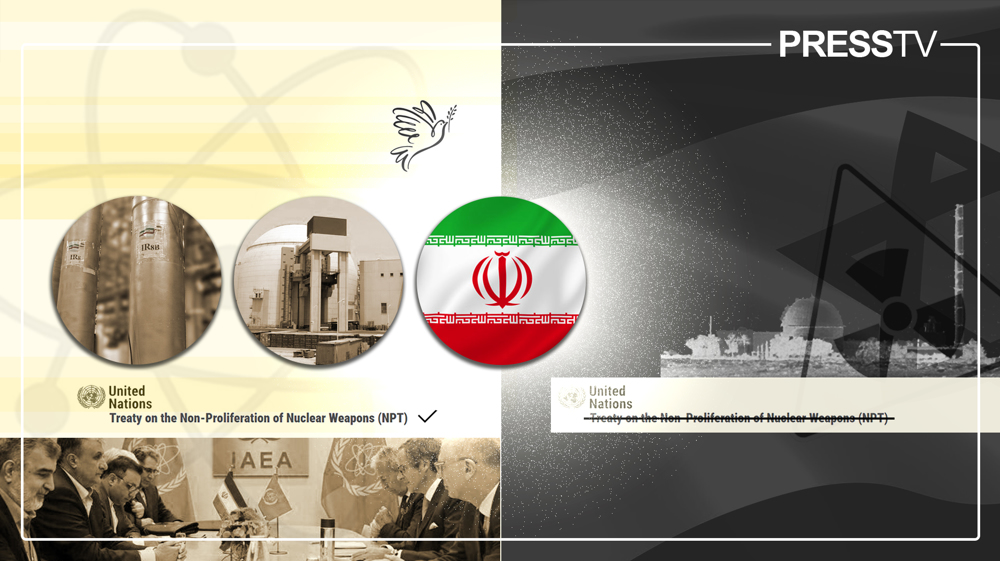





 This makes it easy to access the Press TV website
This makes it easy to access the Press TV website